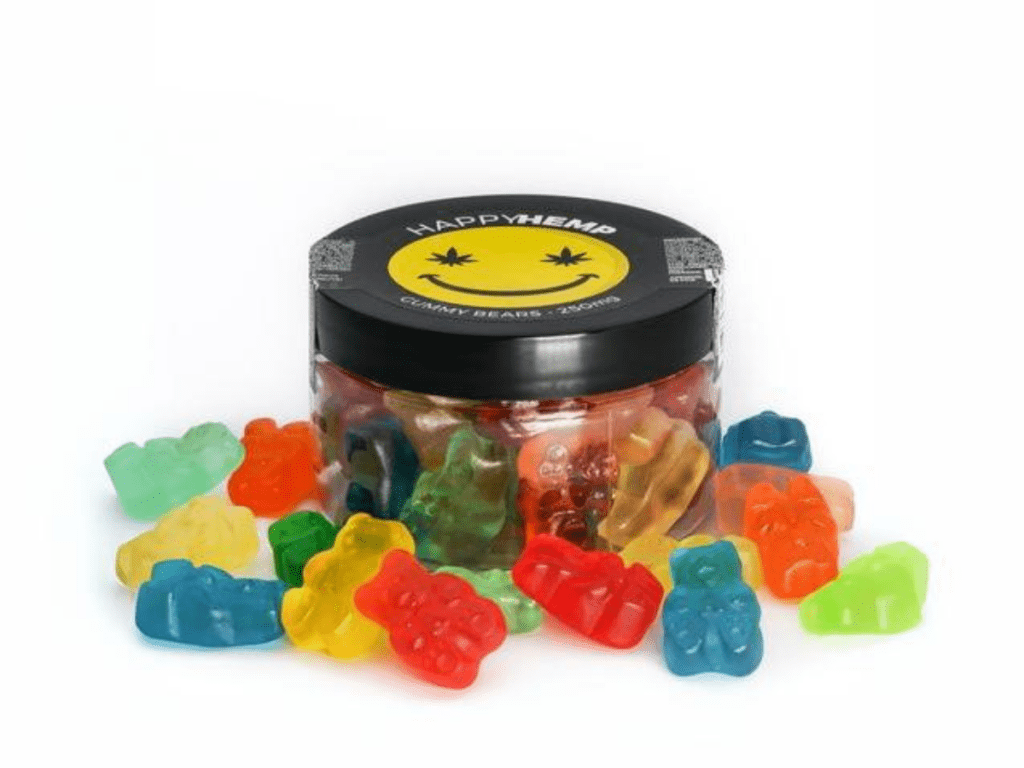Is Delta 8 Legal In South Carolina?
Key Takeaways:
- Legal Ambiguity: Delta 8 THC is legal in South Carolina due to the 2018 Farm Bill, but the lack of specific state laws creates uncertainty.
- Federal and State Laws: Federal scrutiny of Delta 8 is increasing, and South Carolina may eventually regulate or ban the product based on future legal changes.
- Legal Alternatives: Consumers seeking legal alternatives to Delta 8 in South Carolina can explore CBD, Delta 10 THC, and full-spectrum CBD products.
Is Delta 8 THC really legal in South Carolina, or are consumers unknowingly putting themselves at risk? With the rise of hemp-derived cannabinoids like Delta 8 THC, navigating regulations has become increasingly complicated. While Delta 8 offers many of the same benefits as traditional cannabis, its legal status can be confusing for residents of states like South Carolina.
At Happy Hemp, we pride ourselves on being a trusted leader in the Delta 8 industry. With years of experience delivering top-tier, lab-tested Delta 8 THC products, we ensure our customers get nothing but the best. Our deep knowledge of hemp-derived cannabinoids, combined with a commitment to transparency, gives us the expertise to help you understand the ever-changing legalities around Delta 8 in South Carolina.
In this article, we aim to clarify the legal standing of Delta 8 in South Carolina, discuss important differences between state and federal laws, and explore what the future might hold for this popular cannabinoid.
Delta 8 THC Vs. Delta 9 THC: What’s The Difference?
Delta 8 THC and Delta 9 THC are both cannabinoids found in the cannabis plant, but they differ in several important ways:
- Chemical Structure: The main difference lies in their chemical structure. Delta 8 has a double bond on the eighth carbon atom, while Delta 9 has it on the ninth. This slight variation affects how each interacts with the body’s endocannabinoid system.
- Psychoactive Effects: Delta 9 THC is known for its stronger psychoactive effects, often resulting in the “high” associated with marijuana. On the other hand, Delta 8 THC is milder, producing a less intense high, which many users report as being more manageable and less anxiety-inducing.
- Legal Status: Delta 9 THC is federally illegal under U.S. law, though some states have legalized it for medical or recreational use. Delta 8 THC occupies a legal gray area due to loopholes in hemp laws, making it more widely accessible, but not without controversy.
- Availability: Because Delta 8 THC is derived from hemp, it is more readily available in states where Delta 9 remains illegal. It is often sold in the form of gummies, vapes, and tinctures.
Understanding these differences is crucial to grasping the regulations surrounding Delta 8 THC, especially in states like South Carolina.
At Happy Hemp, our Delta 8 gummies offer a perfect way to experience the calming effects of Delta 8 in a delicious, easy-to-consume form. Each product is made with care to ensure a consistent and potent dose that you can trust. Try our Delta 8 gummies today and feel the difference for yourself!
The Current Status Of Delta 8 Legality In South Carolina
As of now, Delta 8 THC is technically legal in South Carolina, but it exists in a gray area due to the nuances in both state and federal laws. Here’s a closer look at its status:
Hemp-Derived Delta 8 THC
Under the 2018 Farm Bill, hemp and its derivatives were federally legalized as long as they contain less than 0.3% Delta 9 THC. This federal law opened the door for Delta 8 THC to be sold legally, as it can be extracted from hemp plants. Since South Carolina adopted this law, Delta 8 THC derived from hemp is also legal in the state.
No Specific State Restrictions
South Carolina has not passed any state-level laws specifically banning Delta 8 THC, unlike some other states that have taken a hard stance on the compound. This means that as of now, Delta 8 THC products are widely available for purchase in South Carolina.
Unclear Regulatory Environment
While Delta 8 THC is not expressly illegal in South Carolina, the state has not established specific regulations governing its sale or use. This leaves some uncertainty about whether the state may change its position in the future, especially if federal laws evolve or if safety concerns arise.
Federal And State Laws Governing Delta 8 THC
Delta 8 THC is governed by both federal laws and state-specific regulations. In this section, we’ll break down these laws to give a clearer picture of how Delta 8 fits into the legal framework, both nationally and in South Carolina.
The 2018 Farm Bill And Delta 8 THC
The 2018 Farm Bill was a pivotal piece of legislation that federally legalized hemp and its derivatives, provided they contain less than 0.3% Delta 9 THC. While this bill didn’t specifically mention Delta 8 THC, it allowed for its legal sale if it is derived from hemp.
Under the Farm Bill, hemp is defined as cannabis containing less than 0.3% Delta 9 THC, while marijuana refers to cannabis with higher levels of Delta 9 THC. Because Delta 8 THC can be extracted from hemp, it is considered legal under this framework. However, Delta 8 THC exists in a legal gray area due to the technical nature of this legislation. While Delta 9 THC is explicitly illegal under federal law, Delta 8 THC is not, which has contributed to its widespread availability in states like South Carolina.
South Carolina Hemp Farming Act
In South Carolina, the Hemp Farming Act, which aligns with the federal Farm Bill, legalized the cultivation, processing, and sale of hemp. This state law allows for the production of hemp-derived products, including Delta 8 THC, as long as they contain no more than 0.3% Delta 9 THC. Unlike some other states, South Carolina has not enacted any laws that specifically outlaw Delta 8 THC, meaning it remains legal as long as it is derived from hemp.
DEA’s Stance On Delta 8 THC
The Drug Enforcement Administration (DEA) has taken a somewhat ambiguous stance on Delta 8 THC. In 2020, the DEA released an Interim Final Rule, which raised concerns about the legality of synthetically derived cannabinoids. Since Delta 8 THC is often created by chemically converting CBD from hemp into Delta 8, there is some concern that it could be classified as a “synthetically derived” cannabinoid.
If Delta 8 is classified as synthetic, it could become illegal at the federal level. However, the rule remains under review, and Delta 8 products continue to be sold in most states, including South Carolina.

Economic Implications Of Delta 8 In South Carolina
Growth Of The Delta 8 Market
The emergence of Delta 8 THC has created a rapidly growing market in South Carolina, mirroring trends seen across the U.S. With consumers seeking legal alternatives to traditional cannabis products, Delta 8 has become a popular choice. Retailers, both online and brick-and-mortar, are capitalizing on this demand by offering a wide variety of Delta 8 products, including gummies, vapes, and tinctures. The market’s expansion is also providing new opportunities for farmers, manufacturers, and distributors within the state.
Job Creation And Retail Opportunities
The rise of Delta 8 THC has led to the creation of jobs in various sectors, from farming and processing to retail and marketing. As demand for Delta 8 products increases, so does the need for workers in cultivation, production, packaging, and sales. Retail shops that sell Delta 8 THC products have proliferated, and online sales have also opened up new channels for entrepreneurs. This growth in retail can positively impact local economies, especially in rural areas where farming and small businesses are vital to the community.
Additionally, specialized companies in South Carolina, such as extraction and manufacturing facilities, have started to focus on converting hemp-derived CBD into Delta 8 THC. This aspect of the supply chain adds further economic value to the state, allowing more local businesses to engage in the cannabis and hemp-derived products market.
Potential Risks To The Industry
While the Delta 8 industry has experienced significant growth, there are risks that could impact its long-term sustainability. The legal gray area surrounding Delta 8 THC creates uncertainty for businesses. If state or federal regulations change, businesses involved in the production and sale of Delta 8 products could face legal challenges or restrictions, which would negatively affect the industry. Companies and consumers are vulnerable to future crackdowns if lawmakers decide to regulate or ban Delta 8, as has occurred in other states.
Moreover, businesses need to navigate a lack of standardized regulations regarding product safety, testing, and labeling. As a result, some consumers may be wary of Delta 8 products due to concerns over inconsistent quality or potential health risks. Regulatory oversight could become necessary to ensure consumer safety and maintain market credibility.
Possible Future Changes In Legislation
Increasing Federal Scrutiny On Delta 8 THC
As Delta 8 grows in popularity, federal lawmakers are likely to push for clearer regulations. This could involve categorizing Delta 8 THC as a controlled substance alongside Delta 9 THC, effectively banning it nationwide, or setting forth specific regulations that would govern its production, distribution, and sale. Any federal action in this direction would significantly impact the industry in South Carolina and beyond.
South Carolina’s Potential Regulatory Response
In South Carolina, the state legislature could decide to take a more active role in regulating Delta 8 THC. As of now, the state has not passed any specific laws targeting Delta 8, but this could change if public safety concerns or federal pressure increase. State lawmakers may choose to ban Delta 8 outright, as other states have done, or they might implement stricter regulations regarding its sale and production, such as mandating lab testing, labeling standards, and licensing requirements for sellers.
Public Health And Safety Concerns
One of the key drivers behind potential future changes in legislation is concern over the safety of Delta 8 products. Since the compound is often synthesized and not as tightly regulated as other cannabinoids, there are questions about product quality, contamination, and the potential for adverse health effects. States that have banned Delta 8 typically cite these concerns, along with the lack of thorough research on its long-term health impact.
If South Carolina experiences an increase in incidents related to Delta 8 usage, such as reports of contamination or unsafe products, it could prompt the state to introduce stricter regulations or a complete ban. Public health officials and advocacy groups may lobby for such changes to protect consumers.
Legal Alternatives To Delta 8 THC In South Carolina
CBD Products
One of the most popular legal alternatives to Delta 8 THC in South Carolina is cannabidiol (CBD), a non-psychoactive compound derived from hemp. CBD has gained widespread acceptance for its potential therapeutic benefits, such as alleviating anxiety, pain, and inflammation, without causing the “high” associated with THC. Under both federal and South Carolina state law, CBD products are legal as long as they contain less than 0.3% Delta 9 THC. Consumers can find CBD in various forms, including oils, gummies, capsules, and topical creams, making it a versatile option for those seeking relief without psychoactive effects.
Delta 10 THC
Delta 10 THC is another cannabinoid that is becoming more widely available as a legal alternative to both Delta 8 and Delta 9 THC. Like Delta 8, Delta 10 is derived from hemp and produces milder psychoactive effects compared to Delta 9 THC. It is considered federally legal under the 2018 Farm Bill, and there are currently no specific laws in South Carolina prohibiting its sale or use. Delta 10 is often marketed as providing an energetic, uplifting high, making it a suitable option for those who want a less intense experience than traditional marijuana.
Full-Spectrum CBD
Full-spectrum CBD products contain a blend of cannabinoids, including trace amounts of THC (below 0.3%), and are also legal in South Carolina. Unlike CBD isolates, full-spectrum products utilize the “entourage effect,” where the combination of cannabinoids works together to enhance therapeutic benefits. Though these products contain a small amount of THC, they are unlikely to cause any psychoactive effects. However, consumers looking for the potential medicinal benefits of THC without the high might find full-spectrum CBD products to be a useful alternative.

Final Thoughts
The legality of Delta 8 THC in South Carolina remains a complex issue. While the compound is technically legal due to its derivation from hemp under the 2018 Farm Bill, the lack of specific state laws addressing Delta 8 creates uncertainty for consumers and businesses alike. As federal scrutiny increases and more states move to regulate or ban Delta 8, South Carolina could eventually follow suit, affecting the availability and legality of these products within the state.
For now, Delta 8 remains accessible, and consumers in South Carolina can legally purchase it. However, they should stay informed about potential legislative changes, both at the state and federal levels. For those seeking alternatives, products such as CBD, Delta 10, and full-spectrum CBD offer legal options that might meet their needs without the legal ambiguity surrounding Delta 8 THC.
As the laws continue to shift, both consumers and businesses should remain cautious and proactive in understanding the current regulations. It’s also important to recognize that with ongoing research into cannabinoids, further developments in legislation could reshape how Delta 8 and other hemp-derived products are regulated in the future.
Read also:
- Delta 8 Dosage Guide: How To Find Your Optimal Dose
- Unlocking Better Sleep: The Top Supplements For A Restful Night
- How Long Does Delta 8 Stay In Your Body?
Frequently Asked Questions About Delta 8 Legality In South Carolina
Where can I buy Delta 8 THC in South Carolina?
Delta 8 THC can be purchased at licensed local dispensaries, smoke shops, CBD stores, and online retailers in South Carolina.
Is it legal to ship Delta 8 THC to South Carolina?
Yes, it is currently legal to ship Delta 8 THC products to South Carolina, as long as they are derived from hemp and comply with federal THC limits.
Can you fly with Delta 8 THC in South Carolina?
You can legally fly with Delta 8 THC within South Carolina and to other states where it is legal, but you should check TSA regulations and the laws of your destination.
How does Delta 8 THC affect drug tests in South Carolina?
Delta 8 THC can trigger a positive result on a drug test since many tests cannot distinguish between Delta 8 and Delta 9 THC.
Can minors buy Delta 8 THC in South Carolina?
No, you must be 21 or older to purchase Delta 8 THC in South Carolina, similar to laws governing other hemp and cannabis products.
Are there restrictions on the amount of Delta 8 THC you can possess in South Carolina?
As of now, there are no specific limits on how much Delta 8 THC you can possess in South Carolina, but this could change with future legislation.
How long will Delta 8 THC stay in your system?
Delta 8 THC can stay in your system for several days to a few weeks, depending on factors like dosage, frequency of use, and individual metabolism.
Sources:
- Abernethy, A. (2019). Hemp production and the 2018 farm bill. US Food and Drug Administration.
- Leas, E. C. (2021). The hemp loophole: a need to clarify the legality of delta-8-THC and other hemp-derived tetrahydrocannabinol compounds. American Journal of Public Health, 111(11), 1927-1931.
- Leas, E. C., Nobles, A. L., Shi, Y., & Hendrickson, E. (2022). Public interest in∆ 8-Tetrahydrocannabinol (delta-8-THC) increased in US states that restricted∆ 9-Tetrahydrocannabinol (delta-9-THC) use. International Journal of Drug Policy, 101, 103557.




